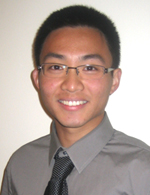By Xin Huang
Northwest Asian Weekly

Xin Huang
Dr. Harvey Fineberg, who is the chair of the International Health Regulations (IHR) Review Committee, briefed the press. They answered questions related to the external review of the global response to the influenza pandemic that is underway after the conclusion of the second in-person meeting.
In May, 2009, the World Health Organization (WHO) declared the HINI flu outbreak to be a “pandemic”. Two conditions were removed from the original definition: “there must be a high morbidity and a high mortality rate.”
At the time of the pandemic declaration, nearly 30,000 people in 74 countries had been infected but only 144 people had died. The death rate works out to less than 0.5 percent, which is very low. In contrast, the diseases Severe Acute Respiratory Syndrome (SARS) had a death rate of about 15 percent, although SARS was not declared a pandemic because few people got infected.
By changing the pandemic definition, the WHO has made it easier to classify the 2009 flu outbreak as one. This, however, adds fuel to criticisms that the WHO seemed to be overly eager to declare a pandemic. (http://www.flu-treatments.com/pandemic-definition.html)
The man with glasses is the speaker, Dr. Harvey Fineberg.
As time goes by, the voices of criticism are getting stronger and stronger. The WHO has been frequently requested to decrypt information to examine the motivation of its definition changing. The review committee has been set up in order to consider the legitimacy of the pandemic definition changing.
From Jun. 30 to Jul. 2, the review committee listened to input from representatives of member states, pharmaceutical companies and media outlets about their experiences with the influenza pandemic response. The external IHR Review Committee is assessing the global response to the influenza pandemic and the general functioning of the revised International Health Regulations.
Dr. Fineberg was not able to judge the essentiality of changing the definition, nor could he point out who should be responsible in this case. He says this meeting was not to “decide to whom the responsibility should be assigned but try to identify lessons we can be learning from this case.”
As the committee, Dr. Fineberg foresees that the approach would be looking into world health assembly questions about the background, policies and procedures of health organizations, especially the WHO. The committee is waiting for the response from some officials of the WHO who were at a certain position in response of this pandemic issue.
Some responses to some criticisms have been posted by the WHO.
The next meeting will be held on Sep. 27–29. The committee is eager to hear from officials responsible in WHO and other leading public organizations, experiences of the developing countries who dealt with the pandemic and international health regulations, additional journalists, and other places which were involved and are able to inform the committee.
Obviously the review has become a fairly time consuming and complex process. It is never easy to pin down a conclusion from a vast diversity of opinions, says Dr. Fineberg. The committee has many avenues to examine the case. But as Dr. Fineberg said, “the committee is not there to satisfy the public but to find the truth.” It is more likely the committee will eventually come up with recommendations for future health regulations making processes; it is not likely that the committee will come up with any candidates who should be accused of being responsible for the enormous amount of money used to purchase HINI vaccines.
During the international controversy about swine flu, the international community has already shown distrust of the international heath regulations. For example, Poland refused to buy the HINI vaccine after the WHO declared a pandemic. Learning from the case of swine flu, more nations might refuse to use the vaccine that the WHO requires in the future when facing flu, which could become a serious health risk.
Regardless who should be blamed, the WHO and the review committee ought to find a solution to rebuild international cooperation and mutual trust, so that international heath security can be ensured and the reaction of the global health emergency can be efficient. That is the responsibility that the WHO should at least bear.
Xin Huang is a senior at Pacific Lutheran University in Tacoma. He is participating in a summer internship in Geneva, Switzerland, where he is attending conferences at the United Nations.

